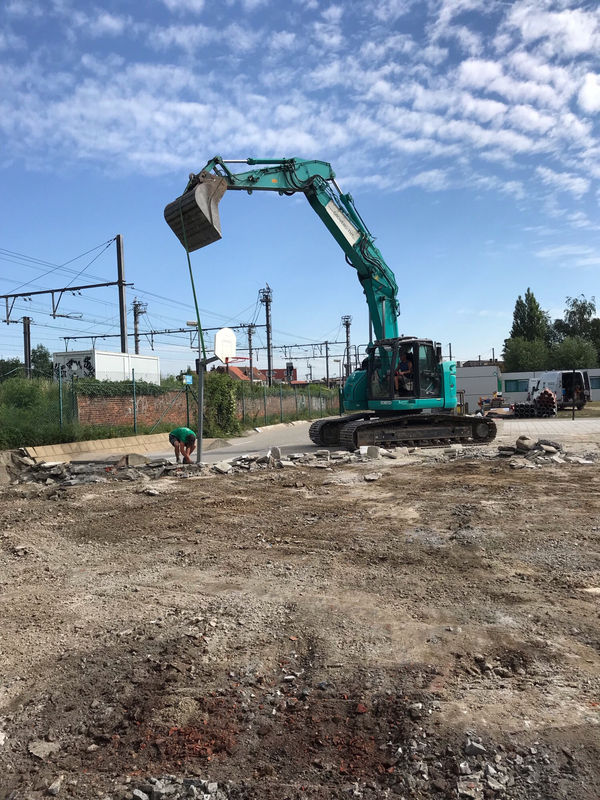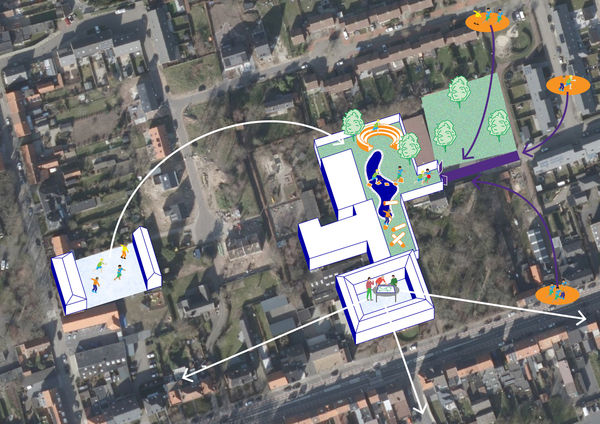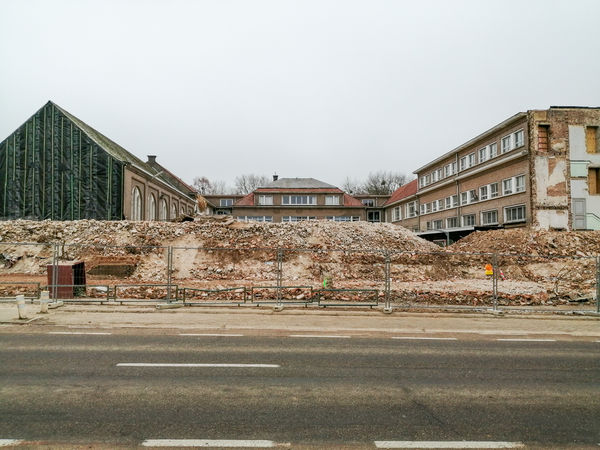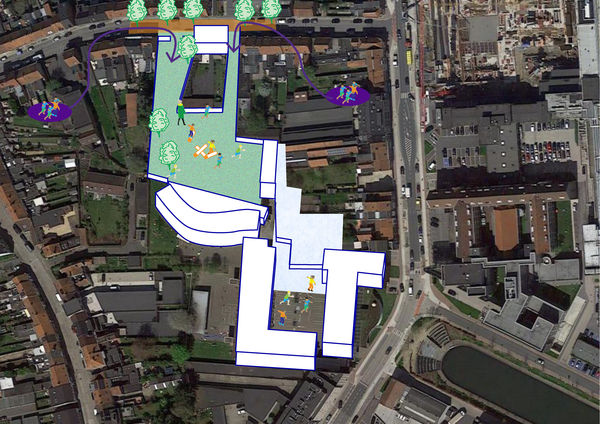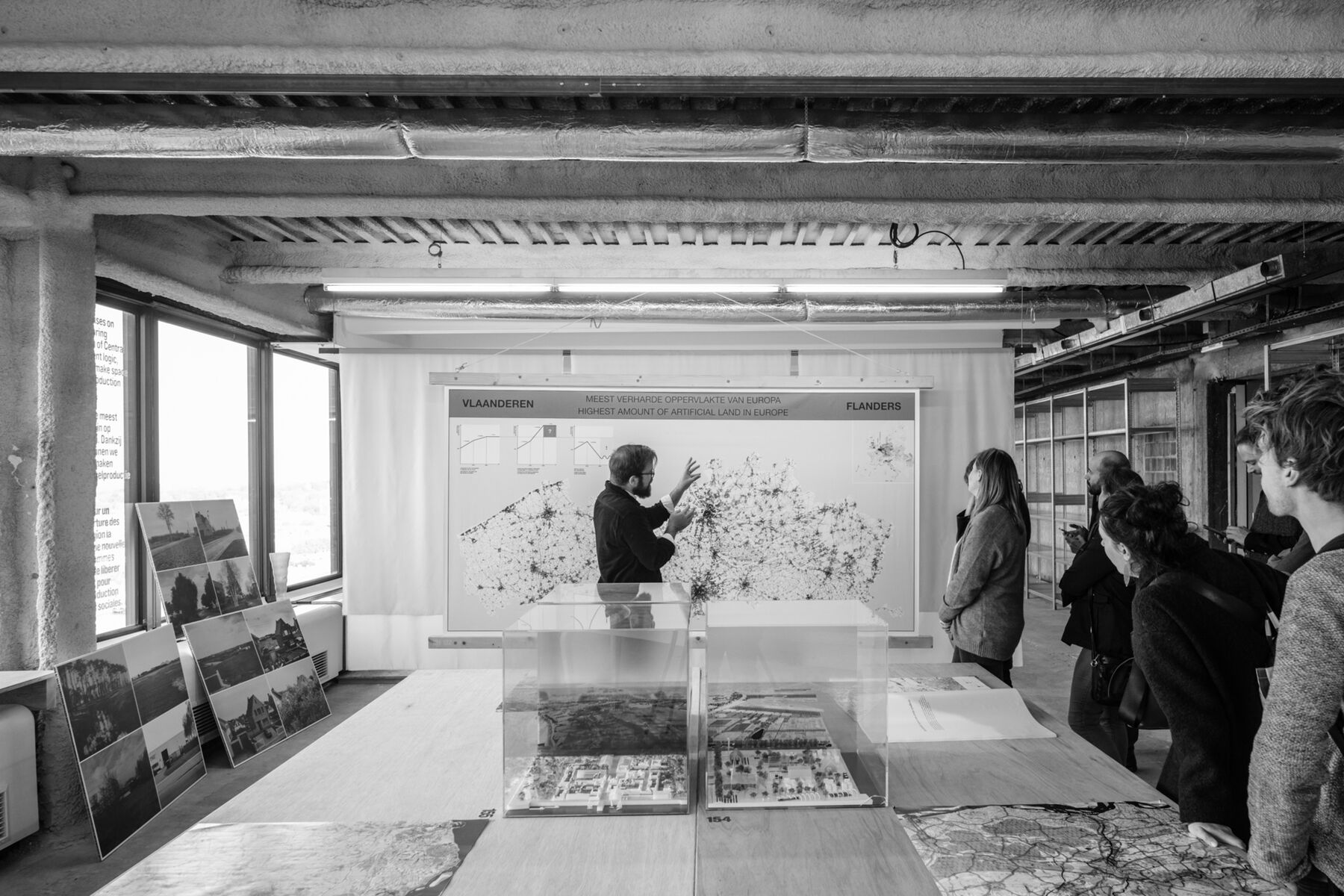Flanders is one of the frontrunners when it comes to hard surfacing in Europe: in 2021, the amount of hard surfacing increased even further to 15.5 per cent compared with 14.2 per cent in 2013. The social impact of so much hard surfacing is far-reaching. We face an increased risk of flooding, insufficient water infiltration, problems caused by heat, less CO2 storage by plants and the soil, and a loss of biodiversity. We are committed to desealing, whereby concrete, asphalt and buildings make way for more greenery, water and a sustainable environment. From 2018-2021, two generations of Desealing Pilot Projects were set up throughout Flanders, as part of the Open Space Platform. Initiators of desealing projects receive support to produce a high-quality redesign of existing hard-surfaced space. We bundled all the knowledge in a workbook on desealing and thus continue the wave of desealing initiatives.
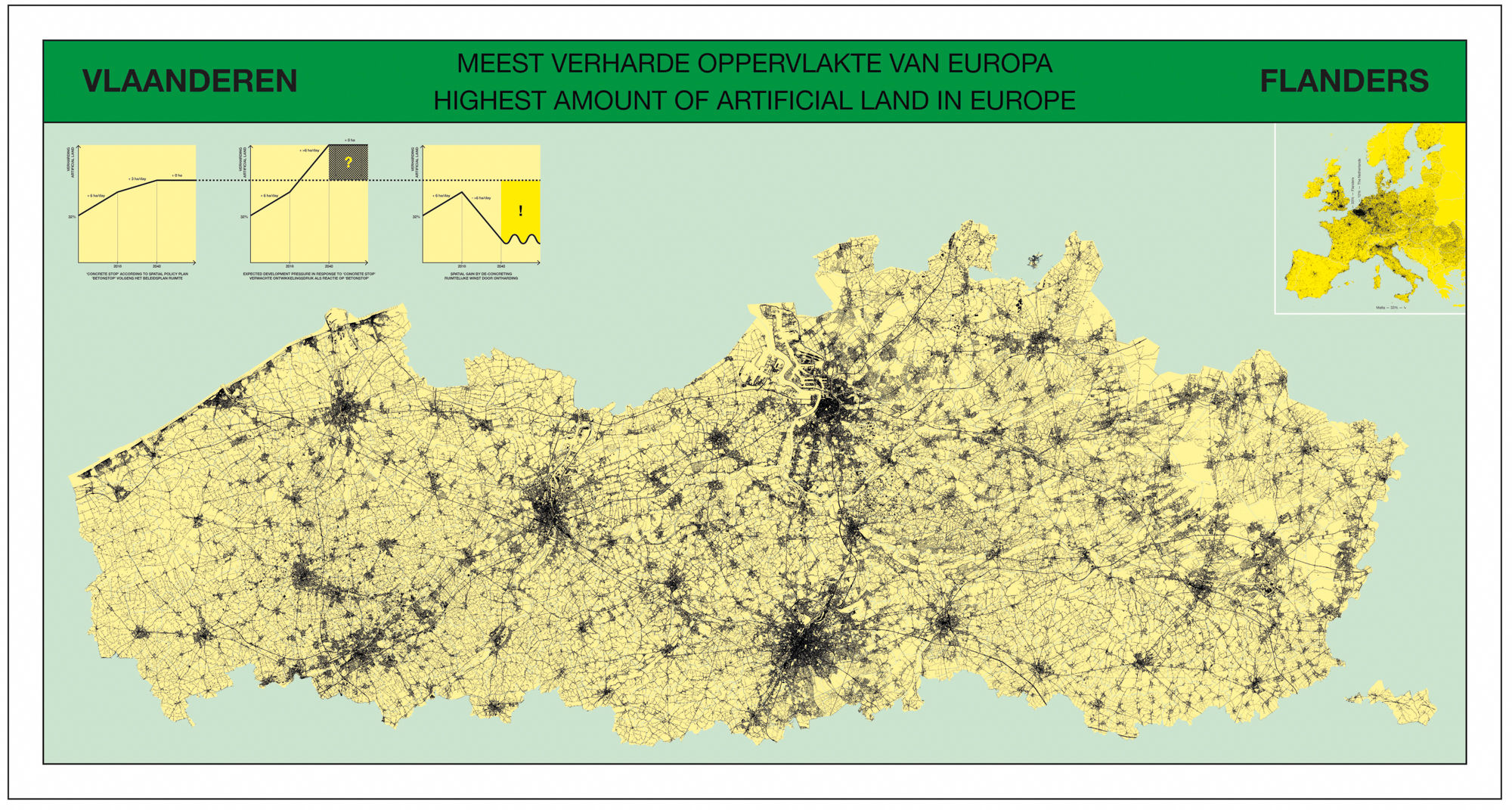
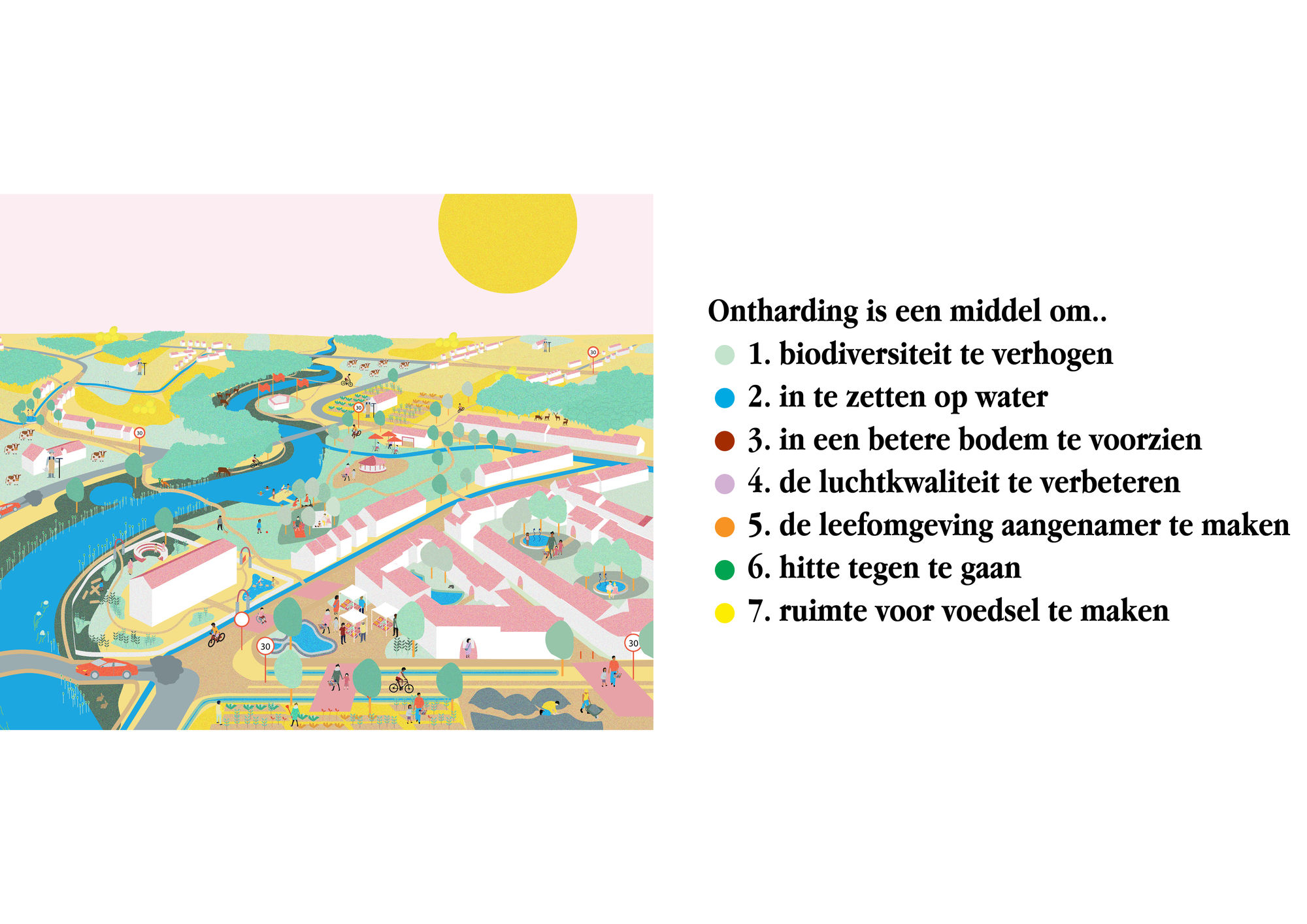
Flanders needs to increase the pace at which it is engaging in desealing. In doing so, we need to do more with less: not carve up any open and undeveloped space, but transform the space already in use. Desealing allows us to create more space for water and greenery, which increases biodiversity, improves air quality and cools in summer. What's more, desealing can result in healthier soil and consequently, more space for food. It enables us to considerably improve the quality of our living environment.
At the first desealing forum in 2018, we created a momentum for desealing initiatives. However, an effective approach was still lacking, with a clear planning framework and appropriate economic, legal and financial logic. This could only be achieved by conducting pilot projects in the field, and learning by doing. Therefore, in the same year, the Department of the Environment (OMG) launched a first series of Desealing Pilot Projects: a learning path for local desealing initiatives and policy change, through interaction between the Department of the Environment and local initiators of desealing actions - local councils, schools, citizens' movements and other organisations.
More than 300 proposals were submitted, after which 22 Pilot Projects were launched. These included quick-win projects, such as the creation of one green play area, coalition-building projects, such as the development of a citizens' movement to remove paving, and systemic desealing projects, such as a study on unsealed and hard-surfaced space in business parks. The initiators were supported with grants and project guidance, to reduce parts of hard-surfaced space and transform the freed-up space using a qualitative design. The process led to specific desealing initiatives in the field, as well as knowledge building and knowledge sharing on how to approach desealing: from process and design-related issues to communication and participation, as well as legal and financial issues and quality assurance.
In 2019, the Department of the Environment launched a second call for Desealing Pilot Projects. It built on the previous one, but focused on three themed objectives: better quality school environments, more space for water and increased mobility with fewer roads. Another 22 Pilot Projects boosted the wave of desealing initiatives.
Architecture Workroom took charge of the substantive process coordination for both calls, working closely with the Department of the Environment, five design supervisors and legal, financial and communication experts. We paired up all the initiatives with one of the design supervisors. Mentoring days resulted in a broad learning environment in which the pilot projects learned from each other according to the different themes: the type of project, location, approach, redesign, legal frameworks, et cetera. At two new desealing forums in 2020 and 2021, we celebrated the 44 pilot projects and launched the workbook on desealing. In it, we review three years of desealing projects with the partners and pilot projects and draw substantive conclusions for the next generations.
The wave of desealing initiatives continues as of 2022, with the call for Green-Blue Networks in the Built Environment.
